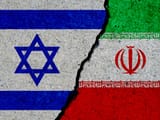Anonymous
ID: 47LlZqRU
6/14/2025, 10:36:53 AM No.507321083
Iran's decision to pursue uranium enrichment appears to have been strategically misguided, ultimately provoking Israel's preemptive strikes on their nuclear facilities. While Iran maintains the program was intended solely for civilian energy production, this approach created unnecessary geopolitical tensions and missed significant opportunities.
If Iran's goal was genuinely peaceful nuclear energy, thorium reactor technology would have been a far superior path. Unlike conventional uranium-based reactors, thorium reactors represent cutting-edge technology with inherent proliferation resistance. Pursuing thorium, leadership could have positioned Iran as a global innovator in next-generation nuclear energy, potentially creating lucrative export opportunities while avoiding the international suspicion that uranium enrichment inevitably attracts.
Perhaps more importantly, Iran could have invested heavily in solar and battery technology, especially considering the abundant sunlight the country receives. Iran's geographic position provides exceptional solar irradiation, particularly in its southern and central regions, making it naturally suited for large-scale solar development. The resources devoted to uranium enrichment and the costs of subsequent sanctions could have funded massive solar installations and cutting-edge battery storage systems. This would have addressed Iran's stated energy needs while creating genuine economic opportunities, potentially establishing Iran as a regional leader in solar technology manufacturing and export.
Alternatively, if Iran sought to enhance its military capabilities, the massive resources devoted to nuclear development could have been allocated more effectively to advanced drone technology and precision weaponry. Such investments would have delivered greater tactical advantages at a fraction of the cost, while generating far less international opposition and sanctions.
If Iran's goal was genuinely peaceful nuclear energy, thorium reactor technology would have been a far superior path. Unlike conventional uranium-based reactors, thorium reactors represent cutting-edge technology with inherent proliferation resistance. Pursuing thorium, leadership could have positioned Iran as a global innovator in next-generation nuclear energy, potentially creating lucrative export opportunities while avoiding the international suspicion that uranium enrichment inevitably attracts.
Perhaps more importantly, Iran could have invested heavily in solar and battery technology, especially considering the abundant sunlight the country receives. Iran's geographic position provides exceptional solar irradiation, particularly in its southern and central regions, making it naturally suited for large-scale solar development. The resources devoted to uranium enrichment and the costs of subsequent sanctions could have funded massive solar installations and cutting-edge battery storage systems. This would have addressed Iran's stated energy needs while creating genuine economic opportunities, potentially establishing Iran as a regional leader in solar technology manufacturing and export.
Alternatively, if Iran sought to enhance its military capabilities, the massive resources devoted to nuclear development could have been allocated more effectively to advanced drone technology and precision weaponry. Such investments would have delivered greater tactical advantages at a fraction of the cost, while generating far less international opposition and sanctions.
Replies:

